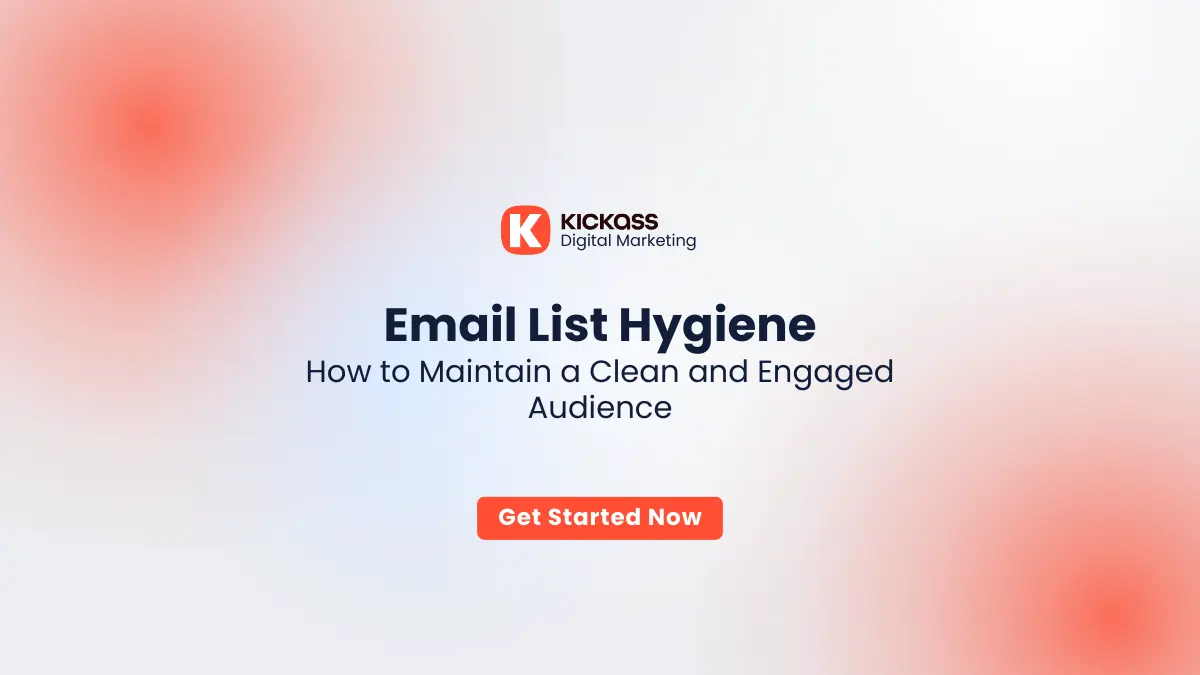Maintain a Pristine Email List for Effective Marketing
In the realm of email marketing, your subscriber list is your kingdom. It’s a treasure trove of potential customers and brand enthusiasts. However, much like a castle or city, your email list requires maintenance to thrive and remain valuable. This is where Email List Hygiene comes into play.
The Essence of Email List Hygiene
Email List Hygiene, in essence, is the practice of regularly cleaning your email list to ensure it remains free from inactive, invalid, or disengaged subscribers. Think of it as the process of weeding your garden to help the beautiful flowers (your engaged subscribers) grow even more vibrantly.
The Importance of Email List Hygiene
Maintaining a pristine email list is not just a good practice; it’s crucial for effective email marketing. Here are some reasons why:
- Boost Deliverability: Internet Service Providers (ISPs) use engagement metrics to determine whether your emails land in the inbox or spam folder. A clean list filled with engaged subscribers sends positive signals to ISPs, leading to improved deliverability.
- Enhance ROI: Sending emails to a vast number of disengaged subscribers is not cost-effective. By keeping your list clean, you can focus your resources on those who are more likely to convert.
- Protect Sender Reputation: A clean list contributes to a strong sender reputation, which is vital for long-term email marketing success.
- Improved Metrics: With a clean list, you can better track the actual performance of your email campaigns. Your open rates, click-through rates, and other metrics will be more accurate and actionable.
- Reduced Bounce Rates: High bounce rates can harm your sender reputation. List cleaning reduces the chances of encountering hard bounces due to invalid email addresses.
How to Practice Email List Hygiene
Now that you understand why Email List Hygiene is essential, let’s explore how to put it into practice.
- Segment Your List: Segment your list based on user behavior, demographics, and engagement. This allows you to send targeted content and promotions to specific groups, maximizing engagement.
- Monitor Engagement: Keep an eye on engagement metrics like open rates, click-through rates, and response rates. Identify subscribers who haven’t engaged with your emails for an extended period.
- Regularly Clean Inactive Subscribers: For subscribers who haven’t opened or interacted with your emails for a prolonged period (e.g., six months), consider re-engagement campaigns. If they don’t respond, it might be time to remove them from your list.
- Address Bounces: Monitor and address email bounces. Emails that continually bounce are a sign of invalid addresses. Remove these addresses from your list to maintain its health.
- Double Opt-in Process: Implement a double opt-in process for new subscribers. This extra step ensures that your subscribers genuinely want to receive your emails.
- Use Verification Tools: Leverage email verification tools to identify invalid email addresses and remove them from your list.
Tools and Best Practices
Several email verification tools and best practices can make Email List Hygiene more efficient:
- FluentCRM: As a self-hosted email marketing automation plugin for WordPress, FluentCRM empowers you to manage your leads, email campaigns, and more without leaving your WordPress dashboard.
- BriteVerify: A real-time email verification tool that checks email addresses for validity before they enter your list.
- ZeroBounce: Offers email validation, email appending, and bounce detection.
- NeverBounce: A real-time email verification and list cleaning service.
For a seamless experience, consider FluentCRM, a Self Hosted Email Marketing Automation Plugin for WordPress. Manage your leads and customers, email campaigns, automated email sequencing, learner and affiliate management, and monitor user activities and more—all from your WordPress dashboard. Explore FluentCRM.
Wrapping It Up
Maintaining a clean and engaged email list isn’t just a choice; it’s a necessity for modern email marketing. It can significantly impact your deliverability, ROI, and sender reputation, ensuring that your emails reach the right people at the right time. By employing best practices and utilizing the right tools, you can keep your email list thriving, helping your email marketing campaigns flourish.
Let’s keep our email lists clean and our email marketing prosperous. 🌱💼


Leave a Reply